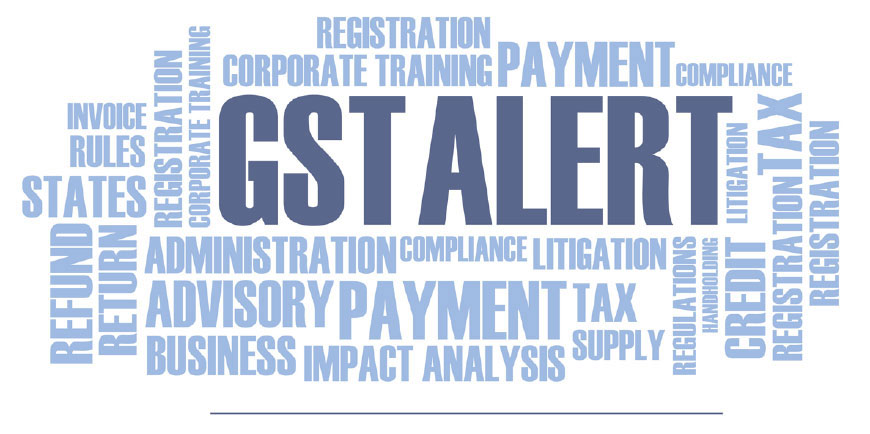- Dated 25th July, 2025

Excessive Bank Guarantee for Provisional Release Without Justification Held Unlawful by Calcutta High Court
BRIEF FACTS:
An Export Oriented Unit, filed a shipping bill to export areca nut powder. During cargo examination, Customs officials sealed the containers and drew samples, suspecting misdeclaration. Despite repeated follow-ups, no test results or clearance was provided, and the goods remain detained. The petitioner applied for provisional release to fulfill export obligations and avoid heavy demurrage charges. Although Customs granted provisional release, they imposed a condition to furnish a ₹3 crore bank guarantee significantly higher than the goods' FOB value of ₹1.99 crore without adequate justification, prompting the petitioner to approach the High Court.
ASSESSEE'S CONTENTION:
The EOU Unit contended that the ₹3 crore bank guarantee demanded by the Customs Authorities for provisional release of goods was arbitrary, excessive, and disproportionate to the FOB value of the goods, which was only ₹1.99 crore. Relying on CBEC Circulars No. 1/2011-Cus. and 35/2017-Cus., and previous judicial precedents such as Priyanka Maurya v. Commissioner of Customs and J.S. Jewels Pvt. Ltd., the exporter argued that security for provisional release should ordinarily not exceed 25% of the value of the goods. It was further submitted that the Customs had not disclosed any grounds or justification for such a high bank guarantee, nor they had alleged or initiated confiscation proceedings. The assessee also urged that demurrage and container detention charges should not be imposed during the investigation period and requested a direction to Customs to expedite the release and share the test results without further delay.
DEPARTMENT'S CONTENTION :
The Department argued that the goods were permitted for duty-free import under the Export Oriented Unit (EOU) scheme, but were suspected of misdeclaration, prompting sample testing and detention. It contended that the ₹3 crore bank guarantee was imposed in accordance with CBEC Circular No. 1/2011-Cus., dated 04.01.2011, which provides that, for provisional release, exporters must execute a bond equal to the value of goods and furnish appropriate security to cover potential redemption fine and penalty, in case the goods are found liable for confiscation. The Department maintained that no irregularity was committed in demanding the said bank guarantee, as it was meant to safeguard government revenue during the pendency of investigation.
DECISION:
The Calcutta High Court held that the ₹3 crore bank guarantee demanded by the Customs authorities was excessive and unjustified, especially since the FOB value of the goods was only ₹1.99 crore and there was no indication that confiscation was being contemplated. The Court observed that the Authorities had failed to provide any reasoning or basis for determining such a high guarantee amount.Relying on CBEC Circulars No. 1/2011-Cus. and 35/2017-Cus., the Court emphasized that detained export goods must be dealt with on a priority basis and that security conditions must be proportionate and reasonable. It directed the Customs authorities to review and reduce the bank guarantee amount within 7 days in accordance with the applicable Circulars. Further, the Court held that no detention or demurrage charges shall be levied for the period of investigation, in view of Regulation 6(L) of the Handling of Cargo in Customs Areas Regulations, 2009, and Regulation 10(L) of the Cargo Manifest and Transhipment Regulations, 2018. The Court also directed that the test results must be furnished to the petitioner within 7 days of receipt, and disposed of the Writ Petition with the aforesaid directions.
BTA's COMMENT:
This judgment reinforces the principle that conditions for provisional release of goods must be fair, reasonable, and based on objective criteria. The Court firmly held that imposing a disproportionately high bank guarantee without justification violates the rights of exporters, particularly when no confiscation is contemplated. It also affirmed the statutory protections available to exporters under Customs regulations, such as exemption from demurrage and detention charges during investigation. The decision serves as an important precedent in ensuring balance between revenue protection and trade facilitation.
Case Reference: Sterling Agro Products vs. Union of India [(2025) 32 Centax 29 (Cal.)], decided by the Calcutta High Court on 30th April 2025.
Author: Madhurima Bose
Edited by: Shaily Gupta
Contact Us
BT Associates
Call: 033 2534-2717 /
033 6451-8729
Mail: enquiry@btassociate.com






